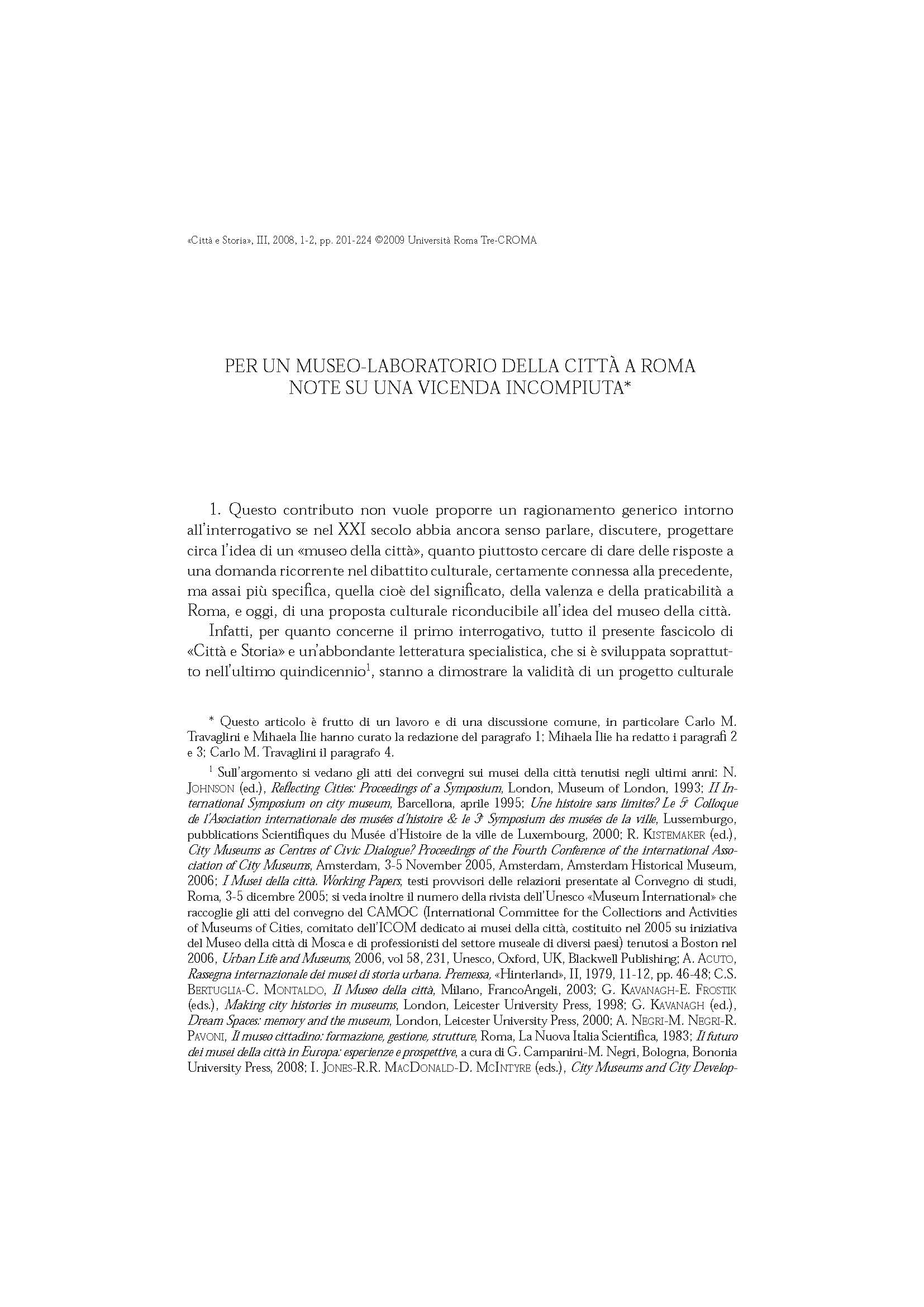Per un museo-laboratorio della città a Roma. Note su una vicenda incompiuta
6,00 €
The essay starts from a discussion on the cultural significance of the city museum of Rome, which is a great city of arts with a long standing history of human settlements. The international value of the model is highlighted as well as the important developments of the last fi fteen years through a review of the specialist literature and many experiences realised or planned in Italy and abroad. The essay goes critically through the history of the Museum of Rome from the first proposals to its foundation in 1930, the subsequent transfer to Palazzo Braschi in 1952, till the opening of the new section in Trastevere, mainly intended to host temporary exhibitions. On account of the loss of identity of the Museum of Rome and its weak link with the city itself, the authors put forward an innovative hypothesis of a museum-lab for the city, able to compete with the most advanced international experiences on a scientific, museological and educational ground.
The essay starts from a discussion on the cultural significance of the city museum of Rome, which is a great city of arts with a long standing history of human settlements. The international value of the model is highlighted as well as the important developments of the last fi fteen years through a review of the specialist literature and many experiences realised or planned in Italy and abroad. The essay goes critically through the history of the Museum of Rome from the first proposals to its foundation in 1930, the subsequent transfer to Palazzo Braschi in 1952, till the opening of the new section in Trastevere, mainly intended to host temporary exhibitions. On account of the loss of identity of the Museum of Rome and its weak link with the city itself, the authors put forward an innovative hypothesis of a museum-lab for the city, able to compete with the most advanced international experiences on a scientific, museological and educational ground.

